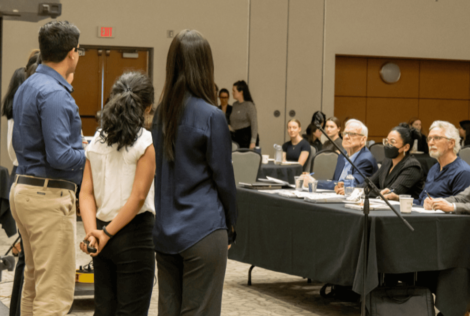
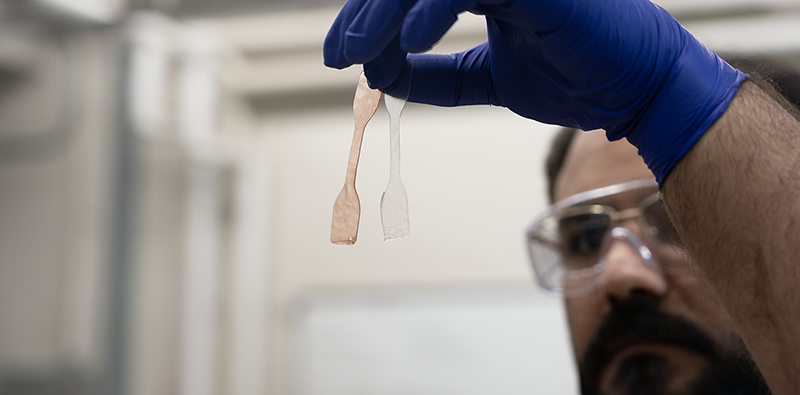
It’s highly flexible, light weight, low cost to manufacture and serves multiple functions. The ubiquity of polyvinyl chloride – or PVC – in our day to day lives points to an abundance of applications. What’s sorely lacking with the third-most produced polymer worldwide are adequate practices for recycling and reuse.
It’s a concern raised by the Vinyl Institute and Vinyl Sustainability Council. The organizations cite that of the 4.5-billion pounds of available recyclable vinyl materials in the United States and Canada each year, only 29 per cent is recycled effectively. The rest is left to languish in landfills.
Creating a circular vinyl economy for PVC is an area of focus for McMaster University Associate Professor of Chemical Engineering, Li Xi, and Kushal Panchal, a McMaster Engineering grad, co-founder and president of Oligomaster Inc., a sustainable solutions start-up promoting research and innovation in the plastics and coating industry.
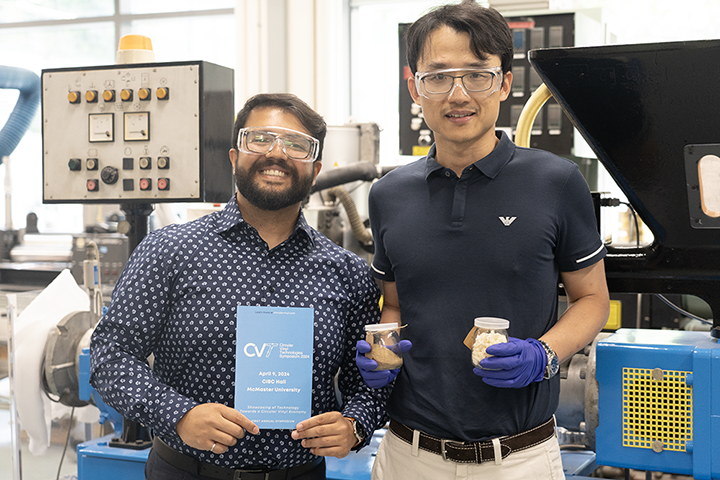
Alongside a network of researchers spanning Queen’s University, Université Laval, and the University of Waterloo, supported by an NSERC Alliance Missions grant, they are working to transform the plastics industry. Specifically, the group is looking at creating a sustainable, closed loop economy for PVC used in the automotive, construction and industrial industries such as car seat covers, roofing membranes and piping.
Their approach is novel; looking at the supply chain in its entirety, which helps industry and academics better understand pitfalls in the product cycle from cradle to grave.
Exploring multiple routes for a complex challenge
The wide variety of commercial PVC materials means that a one-size-fits-all solution is unlikely. Xi, whose research focuses on the dynamics and structure-property relationship of polymer materials, analyzes the effect of repeated production cycles on PVC at the molecular level.
“Analyzing molecular changes will address fundamental questions about the extent of the recyclability of PVC,” says Xi. “We can explore how many times you can potentially recycle the polymer while keeping it intact and part of a closed loop system.”
Xi and Panchal also turned to Queen’s University chemistry professor David Zechel and his colleagues and collaborators in the Genome-funded Open Plastic program for other ways of using PVC wastes, such as converting them into valuable chemicals. The group had been studying biological ways of either degrading plastic waste such as saran wrap, Styrofoam and nylon.
“There are hints in nature that bacteria will degrade materials like black plastic piping and other PVC materials. The hope is that we can domesticate the bacteria or engineer the enzymes required to take waste PVC and break it down into something that is basically compost or even better: a high-value product to maintain a circular economy,” Zechel explains.
It takes a village to cultivate a circular economy
“This is not the type of research that finds success by only talking with academics,” says Panchal. “We need to bring together industry leaders to be part of a coalition of change.” This sentiment inspired the launch of the first annual Circular Vinyl Technologies (CVT) Symposium at McMaster this past spring.
More than 100 thought leaders in academia and industry from across North America gathered to explore what’s new, now and next in the circular vinyl economy. Xi, Panchal, Zechel and other university research partners presented their work.
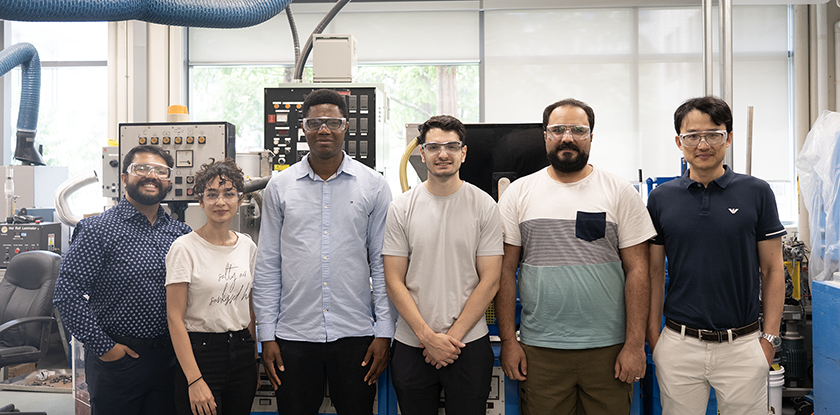
Symposium speaker, Jay Thomas, Executive Director of the Vinyl Sustainability Council, describes McMaster and Oligomaster’s leadership in this space as “having the potential to revolutionize the recycling of post-consumer PVC materials.”
“There was a lot of interest generated at the event,” says Xi. “In my sphere, we know the research side, but it takes multiple, engaged partners to create solutions for such a complex issue.”
Undergraduate researchers, some of whom attended the symposium, are an essential part of developing sustainable solutions for the future, says Xi. Recognizing the importance of education pertaining to circularity research for PVC, Oligomaster has been advising final-year students on their culminating capstone projects related to sustainable product development.
Eliminating textile waste
Building on the momentum of its PVC research, Oligomaster has its sights set on eliminating textile waste from landfills and to promote circularity in the field of coated fabrics.
A VIABILITY grant from the Vinyl Institute was awarded to the organization to research and assemble a comprehensive study to explore the use of advanced recycling technologies in North America.
It’s a pivotal moment for circularity research. We know disruption is needed to truly address sustainability in industrial materials and coatings. The network we’re developing with post-secondary partners like McMaster and industry collaborators will position us well for actioning meaningful change.
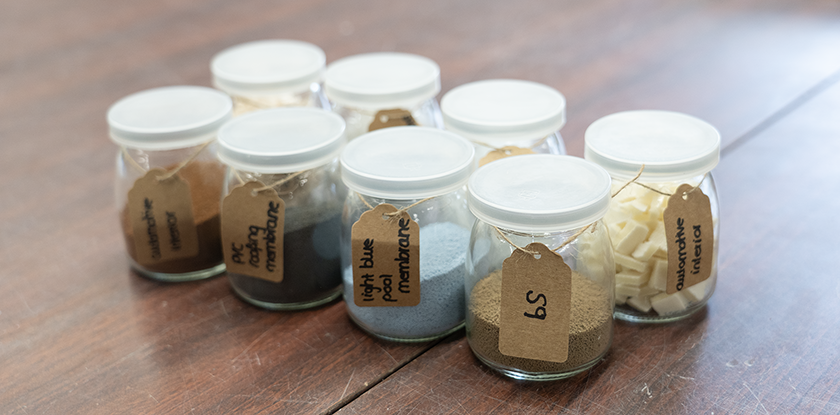
Photos by Roxxannia Wang.


